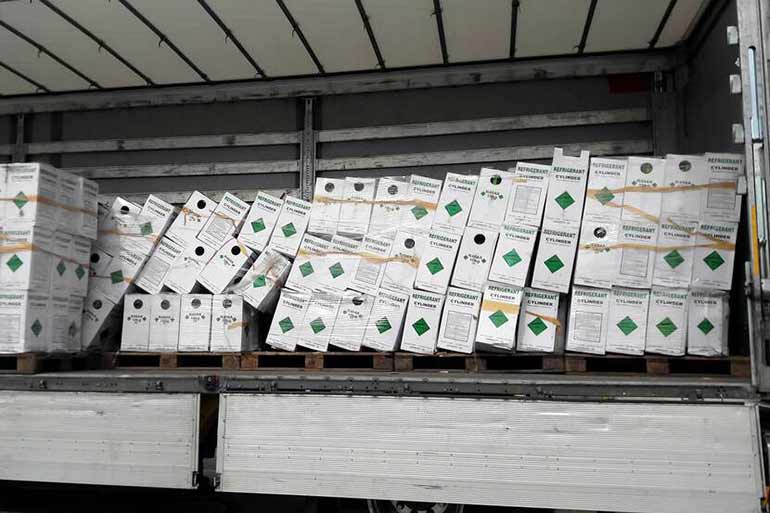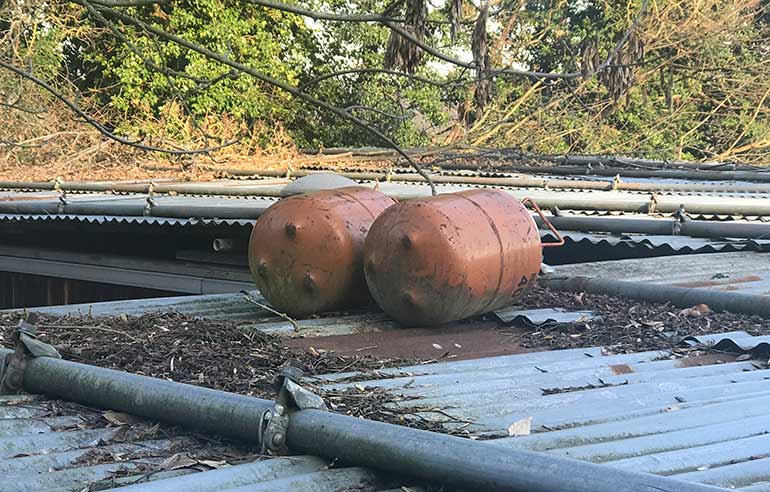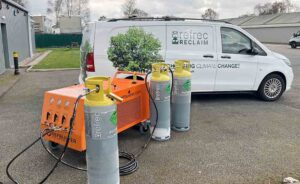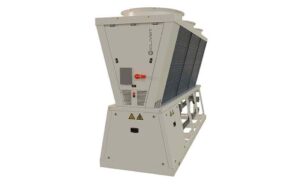EIA and EFCTC seek action on illegal HFC trade
3rd July 2022
UK: Green group the EIA and refrigerant producers body EFCTC have both called for similar measures to thwart the illegal trade in F-gases in Europe.
In separate feedback responses to the European Commission’s F-gas regulation revision proposals, both organisations largely agree on restricting online sales of F-gases, the setting of minimum penalties across EU member states for non-compliance and EU funding for the destruction of seized material.
While the aims of the two organisations would normally be considered to be diametrically opposite, their views on the illegal trade in HFC refrigerants, and ways to combat it, generally concur, albeit, perhaps, for different reasons.
In a joint submission with other environmental NGOs, the EIA maintains that the online sale of F-gases – recognised as a key route for the illegal trade – should be restricted to “genuine F-gas quota holders” through a process of mandatory certification or through registration in the F-gas portal. It also insists that there should be requirements to ensure that undertakings are competent to handle F-gases.
“Moreover, the sale of F-gases through online marketplaces, such as Facebook, Amazon and EBay, should be banned,” it says.
The EFCTC also calls for either a ban for F-gases sales on on-line marketplaces or the introduction of mandatory certification for undertakings selling bulk F-gases online.
The two groups also largely agree on the setting of minimum penalties across EU member states for non-compliance. The EFCTC insists that current penalties in many member states “are too low to act as any sort of deterrent” to illegal activities. The EIA concurs, insisting that it would “be more effective to set minimum penalties for non-compliance, requiring both civil and criminal sanctions, in addition to maximum administrative fines”.

Destruction
Illegal refrigerant seizures create a dilemma for customs authorities since confiscation or seizure comes at a cost for storage and destruction and the revision proposals prohibit re-export.
Both groups suggest funding for its destruction should be provided by the EU. The EIA says the EU should establish a fund to assist member states with the costs of confiscation or seizure and subsequent transport, storage and destruction, funded by the revenue from the quota allocation fee. The EFCTC asks that guidance is mandated for the disposal of confiscated products, containers and equipment being illegally imported into the EU and funding be allocated to the member states for destruction, if that is their chosen option.
“Refillable” cylinders
While there is broad agreement on some issues of illegal trade, the EIA goes further on a number of points including the definition of “refillable container” in respect of the ban on disposable cylinders.
Much of the illegal trade in Europe since the implementation of the F-gas phase down has seen typified by the sale of illegal refrigerant in disposable (non-refillable) cylinders – a type of container which, itself, has been banned in Europe since 2007. A belated crackdown by some European authorities saw the illegal traders switching to supposedly refillable cylinders – a minor inconvenience as the slightly higher cylinder price is more than offset by the illegal traders potential profits.
However, in most cases of illegal trade this still contravenes the F-gas regulation 517/2014. Article 2 (13) of the regulation defines a non-refillable container as a “container which cannot be refilled without being adapted for that purpose or is placed on the market without provision having been made for its return for refilling”.

As first revealed by the Cooling Post, many online sellers either ignored this requirement, offering no mechanism for its return, or maintained that the cylinder became the property of the purchaser. Even some “legitimate”, quota-holding refrigerant sales companies were, and maybe still are, in breech of this regulation.
In its feedback document, the EIA says: “It is unclear what evidence must exist of such “provision” for return for refilling or how it is to be provided, raising the risk that refillable containers will simply be used as non-refillable containers (also prohibited) – a particular problem in illegal HFC trade.
“To this end, the Commission should be empowered to adopt delegated acts outlining the evidentiary requirements to satisfy this requirement,” it adds.
Licensing requirements
While both groups support connecting the F-gas Portal to the EU Customs Single Window Environment Certification Exchange System, the EIA goes further in calling for a removal of the licensing requirement exemptions.
The EIA argues that the licence exemptions in Article 20 will “significantly undermine its effectiveness through the creation of loopholes which can be abused by illegal traders”.
The HFC exemptions includes those in temporary storage, HFCs imported into the EU for destruction or for use in feedstock applications, HFCs supplied for export out of the EU, HFCs supplied for use in military equipment and those supplied for use in the etching of semiconductor material or the cleaning of chemicals.
It argues that HFCs should be included in the licensing system, in line with the approach taken by the Montreal Protocol. “Undertakings importing or exporting any HFCs, whether or not for purposes that are exempt from the HFC phase-down, should be required to register in the F-gas Portal and to have a valid licence. The exemptions listed under Article 20(4) should be deleted,” the EIA says.
The joint EIA submission also included the views of the European Environmental Bureau (EEB), ECOS, CAN-Europe, Climate Advisers Network, 2 Celsius, ECODES, Deutsche Umwelthilfe, Legambiente and ZERO.
The comments have been submitted to the European Commission via the official feedback window which closed on 29 June.The Commission insists that all feedback received will be summarised and presented to the European Parliament and Council with the aim of feeding into the legislative debate.
Related stories:
F-gas proposals “unrealistic” – 26 June 2022
EUROPE: EPEE claims that the proposed revisions to the European F-gas regulation will seriously impact the necessary accelerated heat pump roll out and jeopardise the EU’s REPowerEU objectives. Read more…
Industry calls for rethink on F-gas proposals – 5 April 2022
BELGIUM: Industry groups have been quick to voice concerns that the EC’s F-gas revision proposal contains “worrying” equipment prohibitions and an “unsustainable” phase-down that risk undermining its own environmental goals. Read more…
EC proposes steep HFC cuts and usage bans – 5 April 2022
EUROPE: The European air conditioning and refrigeration industry could face stringent cuts in HFC refrigerants and bans on common AC refrigerants in new EC proposals to strengthen the F-gas regulation. Read more…
F-gas quota cuts will hit heat pump ambitions – 15 March 2022
BELGIUM: The leading European associations have called on the European Commission to rethink its accelerated HFC phase down proposals or risk jeopardising the switch to heat pumps. Read more…
Rise of the disposable “refillable” – 23 January 2019
EUROPE: A clampdown on the supply of refrigerant in illegal disposable cylinders has created a new illicit market in refrigerant being sold in refillable cylinders. Read more…







